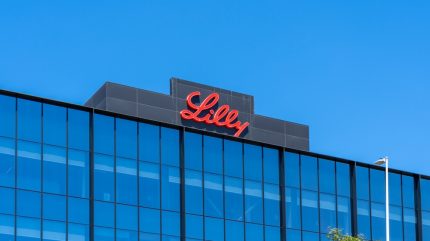
Eli Lilly is adding another asset to its neurodegenerative disease pipeline, gaining an exclusive licence to QurAlis’ preclinical treatment QRL-204 in a $45m upfront payment.
QRL-204 is a splice-switching antisense oligonucleotide (ASO) designed to restore UNC13A function in amyotrophic lateral sclerosis (ALS), frontotemporal dementia (FTD), and other neurodegenerative diseases.

Discover B2B Marketing That Performs
Combine business intelligence and editorial excellence to reach engaged professionals across 36 leading media platforms.
Under the agreement, Lilly gains an exclusive, worldwide licence to develop and commercialise QRL-204 and other UNC13A-targeting compounds. QurAlis will receive an upfront payment of $45m and is eligible to receive up to $577m in future milestone payments, as well as tiered royalties on net sales.
UNC13A is a gene crucial for synaptic function, and genetic variants in UNC13A have been identified as risk factors in ALS. These variants are thought to contribute to the disease by disrupting synaptic vesicle priming and neurotransmitter release, leading to motor neuron degeneration.
Lilly has recently expanded into the ALS and FTD spaces. In 2020, the biotech entered a definitive agreement to acquire Disarm Therapeutics for an upfront payment of $135m. Lilly also gained an FTD asset when it bought Prevail Therapeutics for approximarely $1.04bn, which was completed in 2022.
ALS is a progressive neurodegenerative disorder that affects motor neurons in the brain and spinal cord, leading to muscle weakness, atrophy, and loss of voluntary movement control. Symptoms start with muscle twitching and stiffness, progressing to paralysis and respiratory failure. The ALS market across the eight major markets (US, UK, France, Germany, Italy, Spain, Japan, and Canada) is forecast to reach $1.28bn by 2029, according to GlobalData.

US Tariffs are shifting - will you react or anticipate?
Don’t let policy changes catch you off guard. Stay proactive with real-time data and expert analysis.
By GlobalDataGlobalData is the parent company of Pharmaceutical Technology.
The ALS landscape has faced several obstacles in the past few years. Amylyx’s Relyvrio (sodium phenylbutyrate + taurursodiol), a neuroprotective agent, was approved in 2022 in the US and Canada. The drug briefly but significantly altered the treatment paradigm; however, it was withdrawn last year as it failed to achieve its primary efficacy endpoints in the global Phase III PHOENIX trial (NCT05021536) for ALS.
In the announcement accompanying the deal, Lilly Institute for Genetic Medicine co-director and neurodegeneration research senior vice president Andrew Adams said: “Genetic precision medicines like QRL-204 that target specific causal components of disease pathology hold great promise for delivering meaningful advances against a range of neurodegenerative diseases like ALS and FTD.”




